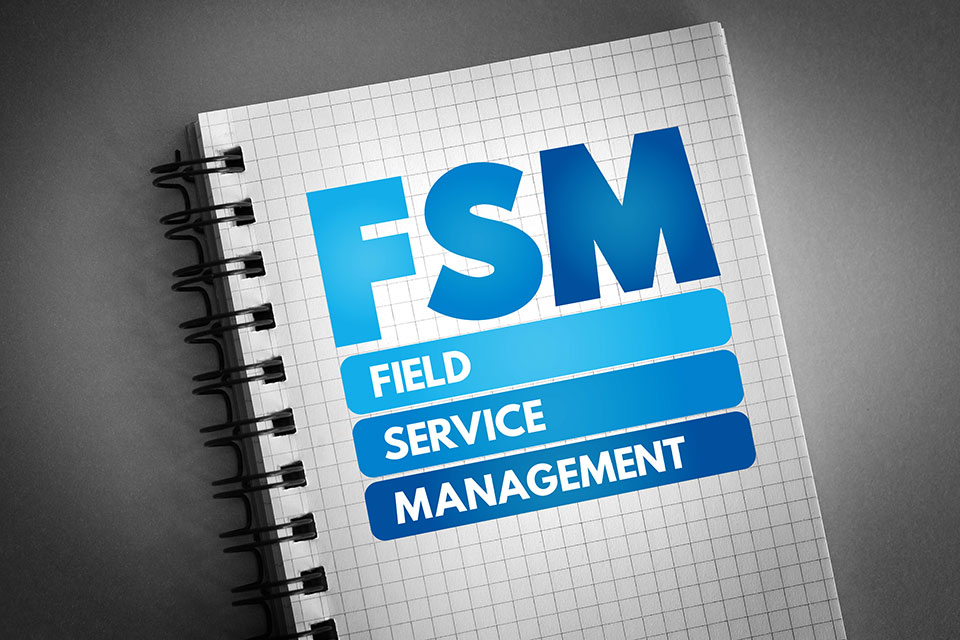The C-Suite Guide To Field Service Management

Among the company employees, those in the C-suite are regarded as the most significant and influential. To get to this level, one needs a lot of experience and a well-honed leadership style. While many C-level executives formerly depended on functional knowledge and technical abilities to climb the corporate ladder, most have developed more visionary viewpoints necessary to make solid top management judgments.
Importance Of Field Service Management To C-Suite
The term ‘C-suite’ or ‘C-level’ is often used to refer to a group of a company’s most senior executives. There are four Cs in the C-suite: CEO (Chief Executive Officer), CFO (Chief Financial Officer), COO (Chief Operating Officer), and CIO (Chief Information Officer).
On the other hand, management of the organization’s people, equipment, service, and operations are known as field service management. For example, allocating and scheduling work orders, sending personnel to new assignments, engaging with field workers while they’re on the job, and controlling product inventories all fall under field service management operations.
Here’s the importance of improved field service management to businesses:
- Better C-suite business choices are made possible by software that makes it easier to gather, monitor, and evaluate critical data (such as field notes, work completion times, and expenditures).
- A reduction in overhead expenses may be achieved by better communication, dispatching, scheduling, and inventory management. These cost savings are passed on to consumers and workers in improved benefits and cheaper costs.
- Modern field service management technologies and procedures replace manual methods, enhancing operational efficiency and personnel productivity.
- C-suite can gain team member satisfaction. After being freed from administrative obligations, field employees may concentrate more time on what matters most: serving consumers.
- Your sales and customer support teams can keep tabs on the whereabouts and progress of your personnel with the field service management system. Tracking appointment progress, driving improvement, and more may all be done using your software instead of calling your field staff.
- A field service management program makes it easier for technicians to equip their vehicles with the supplies they need.
- C-suite can use the KPIs to help them improve their company’s operations, uncover problems, and boost earnings. Tracking field service KPIs is critical to the success of your company.
Therefore, C-suite can optimize field service management by using FieldInsight – Field Maintenance Software to streamline their workforce operations, enhance efficiency, and make everyday life easier for both field employees and administrative staff back in the office.
The Needs To Provide Digital Experience For Customers And Employees
Field service companies are moving from a reactive to a proactive customer-focused real-time strategy due to increasing uniformity of manufacturing processes and equipment characteristics and a lack of difference in terms of field service skills. C-suite can integrate the following into their existing operations:
- Internet Of Things (IoT)
Through the interconnected digital devices commonly used in today’s field service industry, such as mobile platforms and fixed equipment, C-suite can begin to reap the benefits of the Internet of Things (IoT). Field services may benefit significantly from IoT technology in two ways: predictive maintenance and remote servicing.Predictive maintenance focuses on identifying and addressing potential issues before they occur instead of just reacting to a device or system failure. While in remote servicing, through the use of Internet of Things (IoT) triggers, field service companies can resolve issues while the devices or systems they’re working on are still performing. This eliminates the need for scheduled maintenance.
- Virtual And Augmented Reality (VR/AR)
Learning gaps between newer and more experienced technicians or engineers may be reduced by using AR/VR in field service operations. As a result, AR/VR devices may be used to diagnose and fix issues remotely without the need for professional specialists to be present. Improved service operations may be achieved by the use of specialized software for AR and VR headsets. C-suite can make their engineers diagnose and solve their problems much faster. This is the process of building an AR/VR content library that will enable a company to collect all the critical repair data needed to diagnose and resolve issues with their AR and VR platforms. - Field Maintenance Software
As mentioned, C-suite can work seamlessly with their field service team to improve processes and increase productivity. It includes everything from estimating to dispatch and field service management. If you don’t have the necessary tools, field service management may be a difficult task. Enterprise resource planning (ERP) systems are used by many field service firms to support their operations, delivery of services, and overall workforce.Using field service management software, C-suite may simplify the workflows and improve the quality of your service delivery. Get the productivity software you need to build your business with an integrated ERP (Enterprise Resource Planning) and accounting system that’s easy to use.
It helps in organizing and automating repeated procedures, hence lowering the risk of human error in these processes. With these technologies, off-site employees may quickly adjust to changing conditions. If a project goes awry, specialists may instantly consult knowledge bases and technical support groups for assistance.
Increase Team Communication With Field Service Management Technology
C-suite can keep their whole team up to date, both in the office and out in the field, using a single field service platform. Everyone gets access to the current calendar, and software can monitor things like appointment progress, invoice fulfillment, essential follow-ups, and much more. In addition, the software may be used to generate and allocate tasks to members of your team, ensuring that no details are missed.
This better office-to-field communication has the potential to boost teamwork. As a C-suite member, you can encourage your members to do more and provide better customer service. All of these functions and many more may be done inside the software platform so that your team can work together effectively no matter where each team member is located.
Takeaway
Across the board, businesses are undergoing a massive shift as a result of digitization. The innovations have an impact on customers’ interactions with service organizations brought about by digital business transformation. Despite the potential for capital generation, this is a significant risk for corporate leaders and C-suite to improve their field service management.
Bring the best of the CEOWORLD magazine's global journalism to audiences in the United States and around the world. - Add CEOWORLD magazine to your Google News feed.
Follow CEOWORLD magazine headlines on: Google News, LinkedIn, Twitter, and Facebook.
Copyright 2025 The CEOWORLD magazine. All rights reserved. This material (and any extract from it) must not be copied, redistributed or placed on any website, without CEOWORLD magazine' prior written consent. For media queries, please contact: info@ceoworld.biz












